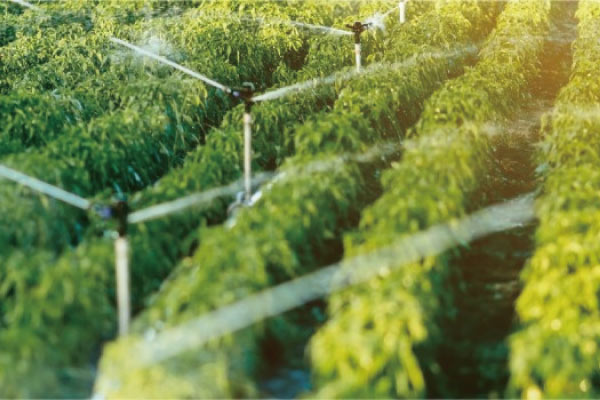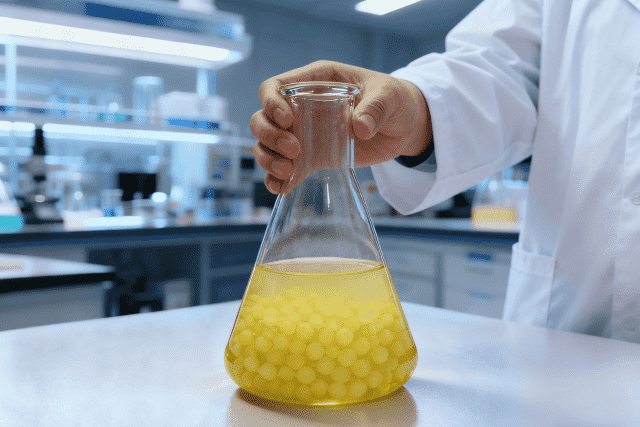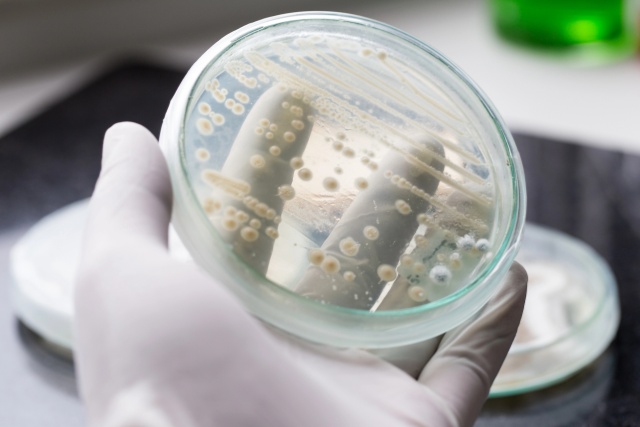The agricultural sector and food producers face an ever-pressing challenge: how to support the global food system while reducing reliance on finite resources or synthetic inputs.

Achieving this is part of an ongoing and complex balancing act, against a backdrop of climate change and environmental considerations, coupled with industry pressures such as market competition and global supply chains.
All this while the global population continues to rise; according to the United Nations, by nearly two billion in the next 30 years to 9.7 billion in 2050.
In order to meet increasing demand arising from population growth, and changes in diet, studies show that global crop yields potentially need to double in the next 35 years (from a 2005 baseline), and that current production methods are projected to fall short of this target.1
Needless to say, producing food in an efficient and sustainable way is becoming a growing focus for those in the industry – and consumers.
Particularly as weather conditions become more extreme due to climate change, maintaining consistent yields year-round requires innovative tools and interventions. Maintaining and increasing consistency of crop yields by way of control systems, such as fertilizers, are widely employed in agriculture.
Aspects such as mitigating soil erosion, promoting soil fertility and reducing contamination are among the many challenges faced by farmers and food producers. Mitigating these challenges is necessary to protect food security, agricultural land and farmers’ livelihoods.
But as the future health of the planet and its people becomes a pressing concern, increasing output without the use of synthetic enhancements, which can contribute to greenhouse gases and global warming, is increasingly being explored; particularly, given, that agriculture is the source of 11% of all greenhouse gases emitted in the EU, including over 54% of all methane emissions, according to the European Environment Agency.
A sustainable alternative
Bio-agriculture is recognized as playing a big part in solving the growing food challenges while at the same time considering the ecological balance and the natural environment.
Bio-agricultural practices which work in harmony with nature can help to protect not just crops today, but also the long-term health of the soil, and ultimately human health.
Bio-controls take a long-term, sustainable approach to disease management and crop protection; they include bio-breeding, bio-pesticide, biofertilizer, bio-feed, agricultural micro-ecology among other areas, and are derived from natural materials such as animals, plants and bacteria. They are typically less toxic than conventional products and practices, and can help growers meet sustainability challenges naturally, by controlling a range of plant pathogens, across a variety of crops.
Biostimulants enhance flowering and plant growth, among other benefits, and can reduce intolerance to a range of physical stresses.
Bioremediation uses microorganisms, plants, or microbial or plant enzymes to purify contaminants in the soil and other physical environments.
Bio-fungicides Bio-fungicides are formulations of living organisms that are used to control the activity of plant pathogenic fungi and bacteria.
Bio-pesticides are certain types of pesticides derived from natural materials including animals, bacteria, plants and some minerals.
Biofertilizers are biological products containing living microorganisms that can promote growth in a range of ways, such as by increasing the supply of nutrients and nutrient uptake of the plant, and increasing root biomass or root area.
The centuries-old method of fermentation technology uses microbial hosts for producing ingredients, such as enzymes and proteins. Fermentation processing is increasingly being applied in the manufacturing of biopesticide, bio-fungicides, bioremediation and biofertilizer, as well as bio-stimulants.
These biological products are made by isolating and enhancing naturally occurring microorganisms and compounds. In agricultural sectors, these are designed to equip growers with new tools for crop protection.
Fermentation nutrients
With more than 30 years of development, Angel Yeast has developed a raft of new products for the field of bio-agriculture, with a range of fermentation nutrients and yeast-sourced biostimulants designed to support sustainable agriculture.
For bio-pesticides, standard yeast extracts (FM902 / FM923 /LD00 / LM800 / LM902 / FM904) offer balanced nutrition levels, are cost effective solutions that support balanced nutrition.
For bio-fungicides featuring high nitrogen levels, Angel Yeast offers tailormade culture media formulation. In food processing sectors, these can aid high production efficiency and are rich in nutrients.
Animal sourced peptone FP321 is designed to support bioremediation, as a cost-effective solution to support consistency that is rich in glycine, proline and glutamic acid, and known to play a key role in the growth and development of plants by way of involved in seed germination, root system construction, pollen germination, and pollen tube growth.2
Animal sourced peptone FP330 is designed to provide basic nutrition offers at a high cost-effective. Meanwhile fish peptone FP351 guarantees high clarity in solution and is conducive to the purification of fermentation products.
As consumers seek more natural foods with minimal processing, fermentation technology can help the food system effectively address environmental factors and move toward a more sustainable future. For manufacturers, using inputs and technologies that support sustainability not only contributes to corporate sustainability goals, it ensures that they are not left behind.
References:
1. Ray, D. K.; Mueller, N. D.; West, P. C.; et al. (2013). Yield Trends Are Insufficient to Double Global Crop Production by 2050. PloS one, 8(6), e66428.
2. Rosa, R.; Hajko, L.; Franczuk, J.; et al. (2023). Effect of L-Tryptophan and L-Glutamic Acid on Carrot Yield and Its Quality. Agronomy. 13(2):562.
Additional references:
European Environment Agency. Agriculture and food system.
This exclusive article was published in Foodnavigator.
About Angel Fermentation Nutrients:
About Angel:




